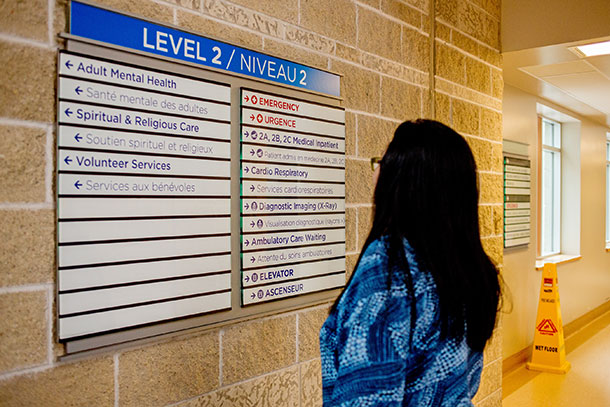
THUNDER BAY NEWS – Local health care leaders announced measures to provide relief from uncharacteristically high overcapacity at Thunder Bay Regional Health Sciences Centre (the Hospital). The TBRHSC has been hit hard over recent weeks with capacity issues, along with a heavy hit from people struggling with the flu and other respiratory ailments.
The local hospital is just one of many hospitals across Ontario experiencing higher admissions of late, mostly related to the flu. The Thunder Bay District Health Unit estimates the “peak” in the flu season will continue for another one- to two-week period. During this time, high volumes of patients with flu-related illnesses requiring hospital admission are anticipated.
The outbreak of flu at local facilities has many closed down for visits and advising the public of concerns to take to prevent the spread of flu and other seasonal respiratory issues.
“We have taken every measure possible to accommodate patients in our Hospital. In addition to our efforts, system partners have responded. Many organizations have contributed to help reduce pressures at our hospital. The collective efforts have been beneficial to this uncharacteristic overcapacity situation. I am particularly grateful to St. Joseph’s Care Group and the North West LHIN for their support in making this development a reality; this allows our specialists to proceed with scheduled surgeries, and to serve our regional hospital partners requiring urgent transfers,” states Jean Bartkowiak, President & CEO, Hospital and CEO, Thunder Bay Regional Health Research Institute.
The North West Local Health Integration Network (LHIN) has made investments over the past two months with health care system partners in the city of Thunder Bay to create capacity for 45 more patients.
Investments are being made in hospital bed capacity throughout the Northwest to ensure patients who receive hospital care in Thunder Bay, but don’t call Thunder Bay home, can be repatriated back to their hometown hospital as efficiently as possible.
In addition to new bed capacity, health system partners have improved and integrated technologies, processes, communications and logistics to reduce demand on the Hospital’s Emergency Room. These avoid unnecessary admissions to the Hospital and ensure the safe and timely discharge of patients to the appropriate care setting.
To provide increased health care system capacity during the peak flu season, the North West LHIN, in cooperation with the Ministry of Health and Long-Term Care is opening 32 temporary hospital beds. The Hospital, St. Joseph’s Care Group and the North West LHIN are collaborating to temporarily transfer up to 32 patients from the Hospital to Hogarth Riverview Manor (HRM).
These patients will be transferred to a wing of HRM, and not co-located with the greater population of current Long-Term Care residents at HRM.
This collaborative strategy will allow the transferred patients to receive care offsite and will be cared for by Hospital staff. Given the impact of the flu season this year, it is anticipated that patients will need to be hospitalized at Hogarth Riverview Manor for six to eight weeks when patient volumes at the Hospital are expected to return to normal levels.
Transferring patients to Hogarth Riverview Manor supports a more comfortable care environment during this period of extraordinary overcapacity. It will also allow the Hospital to continue delivery of acute care services while ensuring that specialists can continue to provide diagnostic and surgical procedures.
“The North West LHIN has worked closely with the Ministry of Health and Long-Term Care, and regional system partners to address the over-capacity pressures facing providers this flu season. On behalf of the North West LHIN, I want to thank system partners for doing their utmost to work together and respond to this challenging flu season. The more integrated the health care system becomes, the more it is able to coordinate and respond to critical circumstances such as these,” says Laura Kokocinski, CEO, North West Local Health Integration Network.
“Overcapacity pressure in healthcare is an ongoing issue throughout our region. There is an exceptionally high and sustained number of people who require an Alternate Level of Care. St. Joseph’s Care Group meets regularly with our system partners to collaboratively develop solutions. We are providing space at Hogarth Riverview Manor to allow Thunder Bay Regional Health Sciences Centre to care for 32 patients in a more appropriate environment,” comments Tracy Buckler, President & CEO, St. Joseph’s Care Group.







